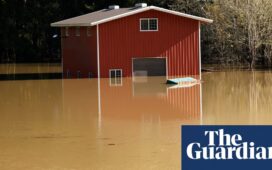The family of a care worker who was killed in the Manchester Arena bombing in 2017, have praised the “heroic” efforts of a member of the public who tried to save him, an inquiry into the bombing has heard.
John Atkinson, 28, from Bury, Greater Manchester, was just six metres away from bomber Salman Abedi he set off a bomb in the the City Room foyer of the Manchester Arena, at an Ariana Grande concert in 2017.
Mr Atkinson was a big fan of the singer and was watching the performance on 22 May 2017 with his friend, Gemma O’Donnell, who happened to be the sister of his partner, Michael.
The public inquiry which was held in Manchester, heard that the two of them were separated during the blast.
Meanwhile, former pizza shop boss Ronald Blake was knocked to the ground by the explosion while waiting to pick up his daughter from the concert with his wife Lesley.
When the smoke cleared and he got to his feet he noticed a man – Mr Atkinson – covered in blood on the floor. Mr Atkinson was apparently conscious and talking following the blast, although he had suffered from injuries to his leg and abdomen.
Mr Blake called the emergency services and passed on the message that Mr Atkinson was “really injured”, that blood was “pumping” from his leg, and that he thought up to 40 other people had been injured.
Mr Blake had received no first aid training but attempted to stem the flow of blood from Mr Atkinson’s leg, using his wife Lesley’s belt.
This was after he was told by the 999 call holder to place a tourniquet on Mr Atkinson’s leg and apply pressure to it.
Mr Blake held the tourniquet on Mr Atkinson’s leg for almost one hour, whilst waiting for paramedic to attend to the injured care worker.
Mr Blake told the inquiry: “I have never had any first aid training and my natural instinct at the Arena was to try and stop the blood and keep him conscious. When I left him with the paramedics I thought he was going to survive.”
He went on to explain Mr Atkinson was conscious and talking while they were together. He added he had been “shocked” to discover the next day, when he was being treated in hospital for injuries of his own, that Mr Atkinson had died.
John Cooper QC, representing Mr Atkinson’s family, said to Mr Blake: “I profoundly thank you on their behalf for the hard work, dedication and I can think of no better word than heroics that you performed on that night trying to save John. Their heartfelt thanks to you for that.”
He went on to ask Mr Blake: “During the time you were dealing with John it was obvious, wasn’t it, that he was very, very severely injured?”
The witness replied: “Yes.”
Mr Cooper went on: “And you didn’t need, for instance, a medical qualification to see that, did you, it was obvious from the amount of blood he was losing?”
Mr Blake said: “Yes.”
The inquiry has heard from experts that timely medical intervention could have made a difference to whether or not Mr Atkinson survived. They also heard that the issue will be “considered with care”.
Just three paramedics from North West Ambulance Service (NWAS) entered the City Room on the night of the bombing, with two of them arriving only a few minutes before Mr Atkinson was evacuated.
Available footage showed that Mr Atkinson was not triaged, assessed or assisted by NWAS personnel for the 47 minutes he lay in the City Room, the inquiry heard.
Additional reporting by PA


